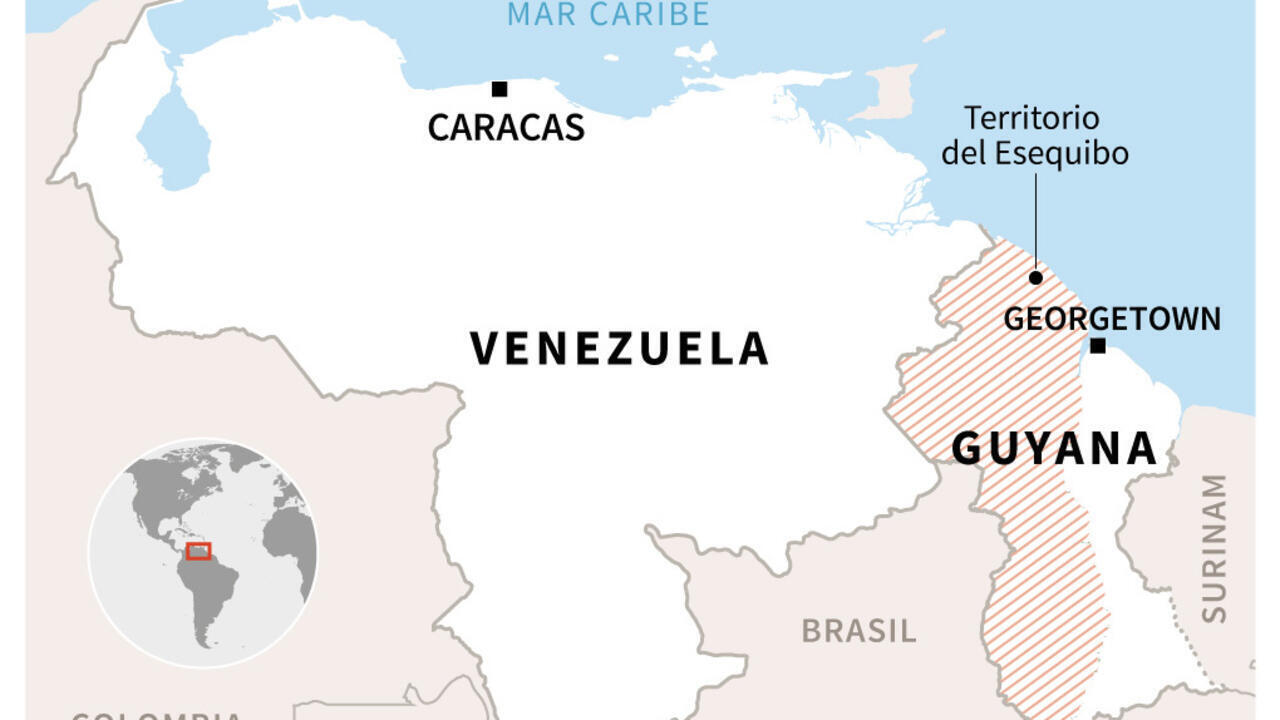First modification:
The Hague (AFP) – The International Court of Justice (ICJ) rejected this Thursday the new objections of Venezuela in the territorial dispute that opposes it to Guyana for the Essequibo, revived by the discovery of rich oil deposits in that region.
Found versions. In the old struggle for this territory of 160,000 km², Guyana defends a limit established in 1899 by an arbitration court in Paris and Venezuela claims the Geneva Agreement, signed in 1966 with the United Kingdom before Guyanese independence, which established the bases for a negotiated solution and was unaware of the previous treaty.
The case has been in the hands of the ICJ since 2018, the largest UN jurisdiction based in The Hague.
The ICJ “rejects the preliminary objection raised by the Bolivarian Republic of Venezuela” with the vote of 14 judges against onedeclared the president of the court, Judge Joan Donoghue, with which the court can now proceed to hearings on the merits of this dispute.

“Guyana is confident that the court will confirm its long-standing international boundary with Venezuela,” Guyanese President Irfaan Ali said in a statement. “Guyana has always been fully committed to the peaceful settlement of the dispute with its neighboring sister republic, in accordance with international law,” he added.
Caracas he had asked for involvement in the UK case.
“Venezuela does not recognize the judicial mechanism as a means of resolution” of the “controversy” with Guyana, the Venezuelan government reacted in a statement read to the press by Vice President Delcy Rodríguez, accompanied by the foreign minister, Yván Gil, and the Minister of Defense General Vladimir Padrino.
“The truth accompanies us. The Essequibo is Venezuela!”, published the president, Nicolás Maduro, when disclosing the document on the Twitter network.
Venezuelans and Venezuelans will continue the tireless and firm fight to defend respect for the historic Geneva Agreement and the territoriality of our dignified nation. The truth is with us. The Essequibo is Venezuela! pic.twitter.com/GRzz8igFtz
— Nicolas Maduro (@NicolasMaduro) April 6, 2023
The dispute reignited in 2015, when the American giant Exxon Mobil found oil deposits off the coast of the Essequibo, which is equivalent to two thirds of Guyana.
“Fraudulent arbitration”
Venezuela will evaluate the “implications” of the ICJ ruling “exhaustively” and “will adopt all the measures at its disposal to defend its legitimate rights and territorial integrity,” added the statement read by Rodríguez.
“From the FANB (Armed Forces) we reaffirm our commitment to guarantee the territorial integrity of Venezuela,” Padrino said on social networks.

The Venezuelan State argues that the Essequibo belongs to it because it was part of the Captaincy General of Venezuela of the Spanish Empire and that the limits in the South American countries were established under the principle ‘utis possidetis iuris’, which implies that the territory they had corresponds to them. during the Colony.
Guyana, by contrast, claims that the current border is valid by the ruling of 1899.
The Venezuelan statement describes that ruling as “fraudulent arbitration”, stressing once again the 1966 agreement as “the only valid instrument to settle this controversy.”
Obligation
The International Court of Justice ruled in 2020, over the objections of Venezuela, that it had jurisdiction to review the dispute.
The dispute had relied on the “good offices” of the UN, which agreed in 2018 to take it before the ICJ.
Caracas, in principle, refused to attend their hearings, but their representatives ended up attending.
“All member states of the United Nations, including Guyana and Venezuela, are bound by the Charter of the United Nations to comply with court rulings,” Ali said Thursday, recalling that it is the “second time” that the ICJ rejects “jurisdictional objections” from its neighbor.
with AFP













